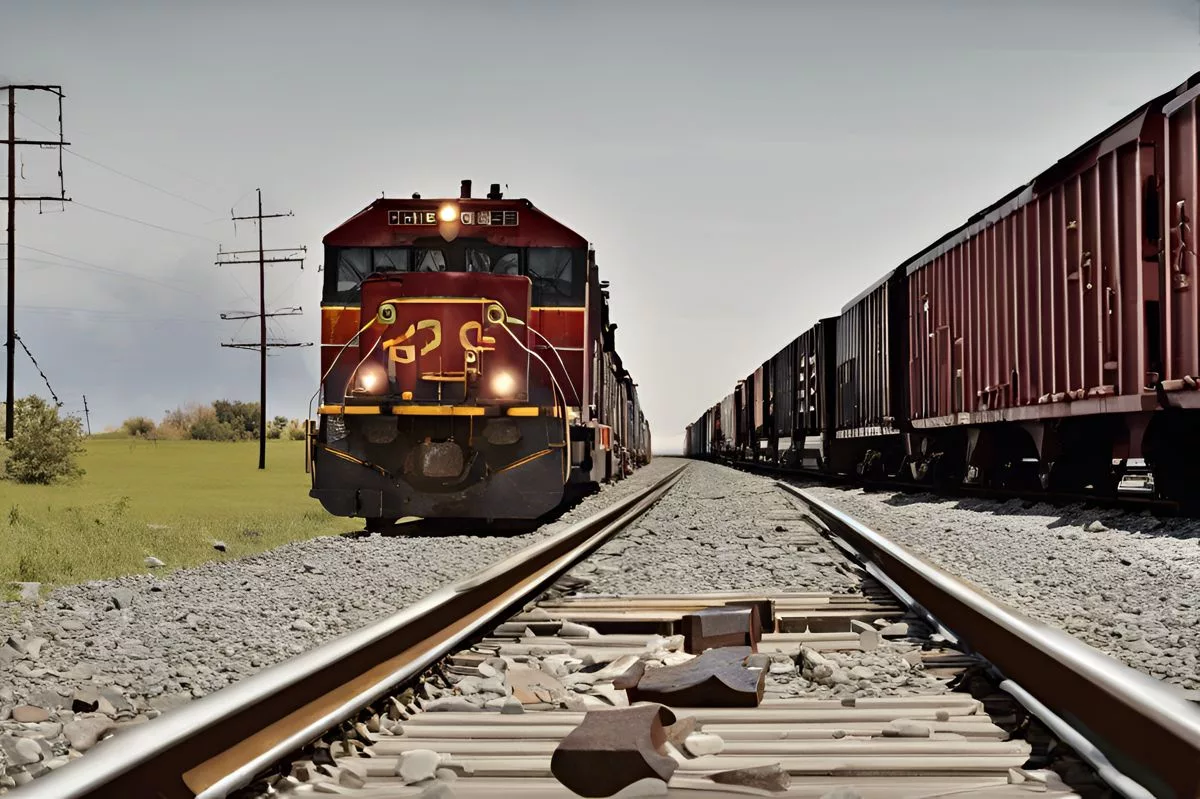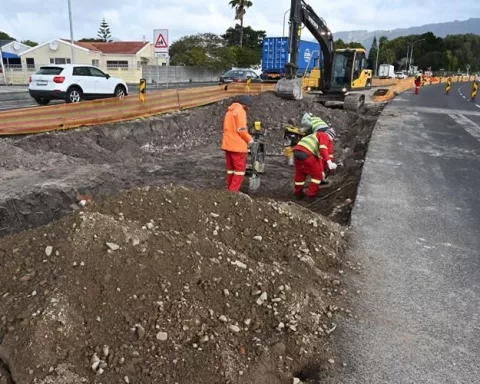Cape Town is facing a rising gang and drug crime crisis, along with a lack of efficient passenger rail services. Mayor Geordin Hill-Lewis is calling for stronger action against corrupt elements within the South African Police Service (SAPS) and advocating for greater law enforcement powers for municipal authorities. He also wants to form a joint working committee to accelerate rail devolution, with the potential benefits of efficient trains saving lower-income households up to R932 million per year and contributing R11 billion to the economy annually. The City is committed to addressing these pressing issues and advocating for its residents.
How is Cape Town addressing the growing gang and drug crime crisis, as well as its inadequate passenger rail services?
Cape Town’s City Mayor, Geordin Hill-Lewis, is advocating for a crackdown on corrupt elements within the South African Police Service (SAPS) and devolving greater law enforcement powers to municipal authorities. He’s also pushing for the formation of a joint working committee to expedite rail devolution, with a defined deadline for transferring passenger rail management to Cape Town. The City’s ongoing rail feasibility study suggests that efficient trains could save lower-income households up to R932 million per year and contribute an additional R11 billion to the local economy each year.
Section 1: Ignored Issues in the State of the Nation Address
In the bustling South African city of Cape Town, an escalating gang, gun, and drug crime crisis coupled with the glaring inadequacy of passenger rail services are causing immense distress. Despite being pressing issues, these grave concerns weren’t mentioned in President Cyril Ramaphosa’s State of the Nation Address (SONA) on February 8, 2024. City Mayor Geordin Hill-Lewis expressed his dismay and worry over this apparent neglect. Consequently, it is crucial to examine these issues and identify potential remedies.
Cape Town is grappling with a mounting gang, gun, and drug crime wave that has cast a shadow of fear and uncertainty among its residents. The police force seems ill-equipped to handle this crisis. Mayor Hill-Lewis believes that the President’s mention of national SAPS recruitment figures and arrest statistics in his address only provides a superficial view of the existing problem. The police force is clearly lacking resources, particularly in terms of investigative capacity, contributing to a dismal conviction rate for gang-related crimes.
The infiltration of the police force by gang members is a further unsettling aspect. This corruption within the SAPS has led to law enforcement firearms being diverted into criminal hands. The consequent brutal outcomes, including the loss of innocent lives caught in violent drug conflicts, are alarming.
Section 2: A Call for Stronger Action Against Crime
Mayor Hill-Lewis urges an intensive crackdown on corrupt elements within the SAPS and advocates devolving greater law enforcement powers to municipal authorities to boost the battle against crime. He believes that vesting higher authority in City officers would enable them to build robust, prosecution-ready cases against gang, gun, and drug crime. Indeed, the City’s law enforcement has already shown its mettle by seizing 447 illegal firearms over the past two fiscal years and doubling annual drug arrests from 4,000 to 8,000 during the same timeframe.
The City’s public transportation crisis is yet another critical issue. The shortage of safe, affordable trains is a daily hardship, particularly for families with lower incomes. President Ramaphosa’s silence on the Rail Devolution Strategy, a project expected to be in full swing by the end of 2023, has left City administrators feeling dismayed.
Section 3: Advocacy for Enhanced Passenger Rail Services
Mayor Hill-Lewis is keen on the formation of a joint working committee to expedite rail devolution, with a defined deadline for transferring passenger rail management to Cape Town. The potential perks of a functional rail system are considerable. The City’s ongoing rail feasibility study suggests that efficient trains could save lower-income households up to R932 million per year. Moreover, a fully operational rail system could maintain more than 51,000 jobs and contribute an additional R11 billion to the local economy each year.
Section 4: The Way Forward
As the City of Cape Town, with Mayor Hill-Lewis at the helm, strives to combat crime and champion the devolution of passenger rail services, it is evident that federal backing and intervention are vital. As South Africans gear up for an election year, it is hopeful that these pressing issues will finally be given the attention they warrant. Despite the hurdles, the City remains steadfast in its commitment to advocate for communities living in constant fear of crime and struggling with inadequate public transportation.
-
What issues are plaguing Cape Town currently?
Cape Town is facing a rising gang and drug crime crisis, along with a lack of efficient passenger rail services. -
What is Mayor Geordin Hill-Lewis advocating for to combat these issues?
Mayor Geordin Hill-Lewis is calling for stronger action against corrupt elements within the South African Police Service (SAPS) and advocating for greater law enforcement powers for municipal authorities. He also wants to form a joint working committee to accelerate rail devolution. -
What are the potential benefits of efficient trains in Cape Town?
Efficient trains could save lower-income households up to R932 million per year and contribute an additional R11 billion to the local economy each year. -
What was the response of Mayor Hill-Lewis to the State of the Nation Address?
Mayor Hill-Lewis expressed his dismay and worry over the apparent neglect of the pressing issues of gang and drug crime crisis and inadequate passenger rail services in the State of the Nation Address. -
What are the challenges faced by the police force in Cape Town?
The police force seems ill-equipped to handle the current crime crisis, particularly in terms of investigative capacity, contributing to a dismal conviction rate for gang-related crimes. Corruption within the SAPS has led to law enforcement firearms being diverted into criminal hands. -
How is Cape Town addressing these issues?
Cape Town’s City Mayor, Geordin Hill-Lewis, is advocating for a crackdown on corrupt elements within the South African Police Service (SAPS) and devolving greater law enforcement powers to municipal authorities. He’s also pushing for the formation of a joint working committee to expedite rail devolution, with a defined deadline for transferring passenger rail management to Cape Town. The City’s ongoing rail feasibility study suggests that efficient trains could save lower-income households up to R932 million per year and contribute an additional R11 billion to the local economy each year.













